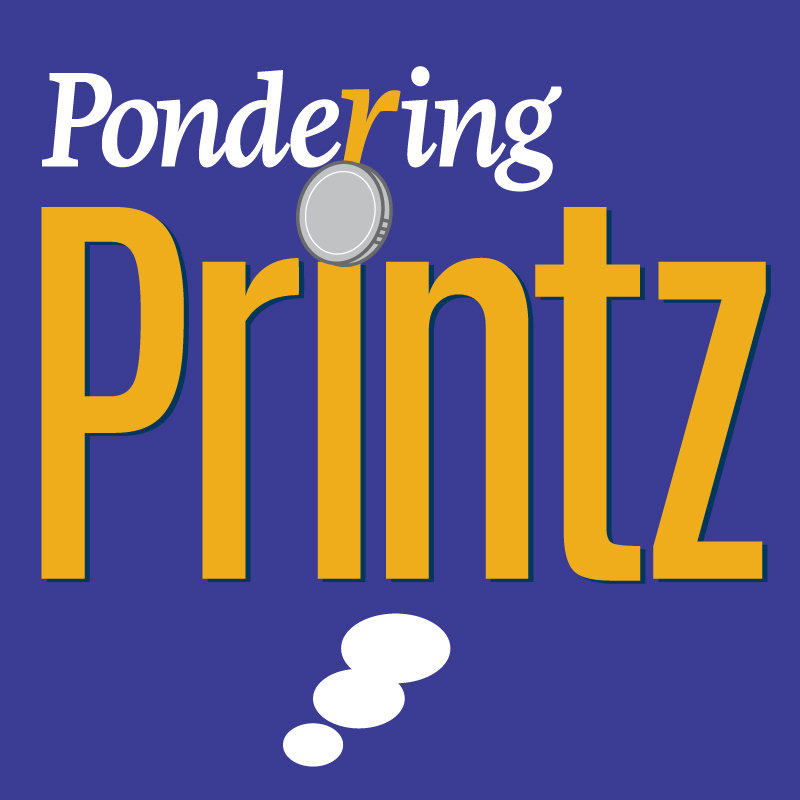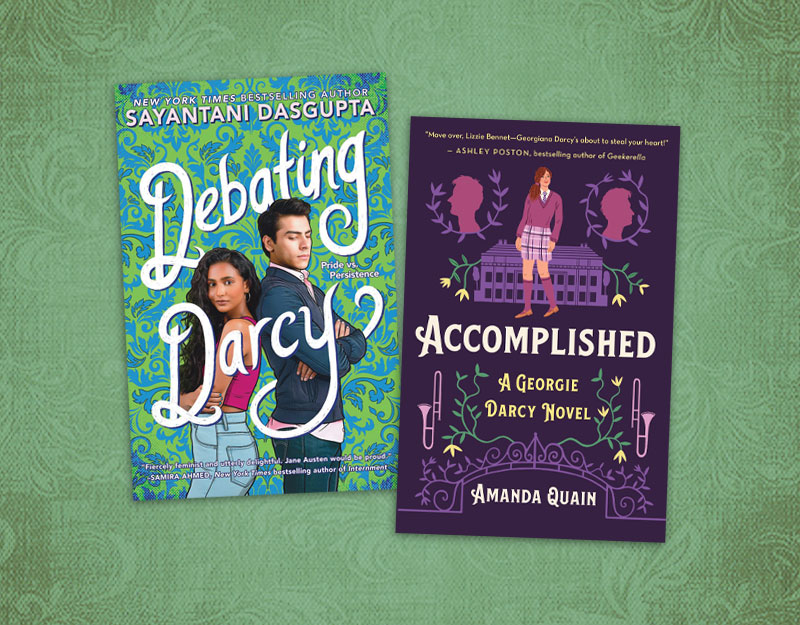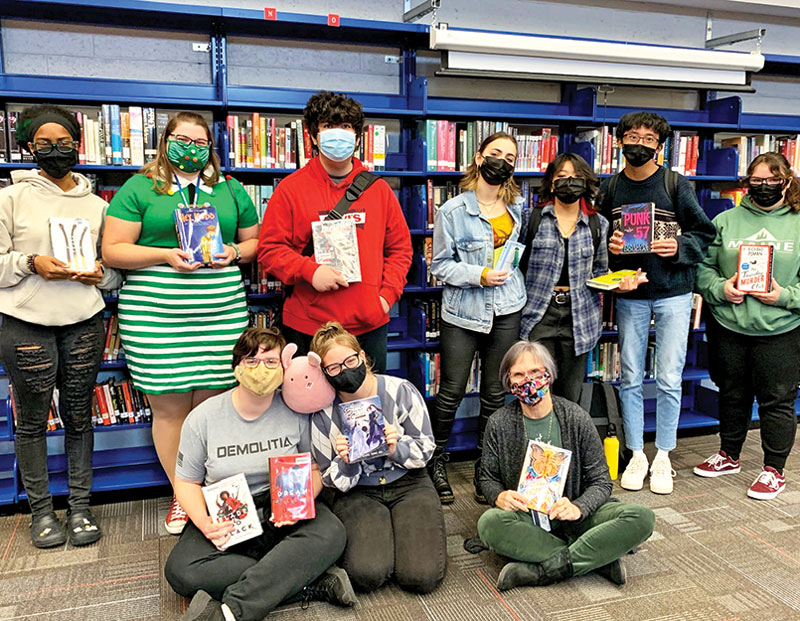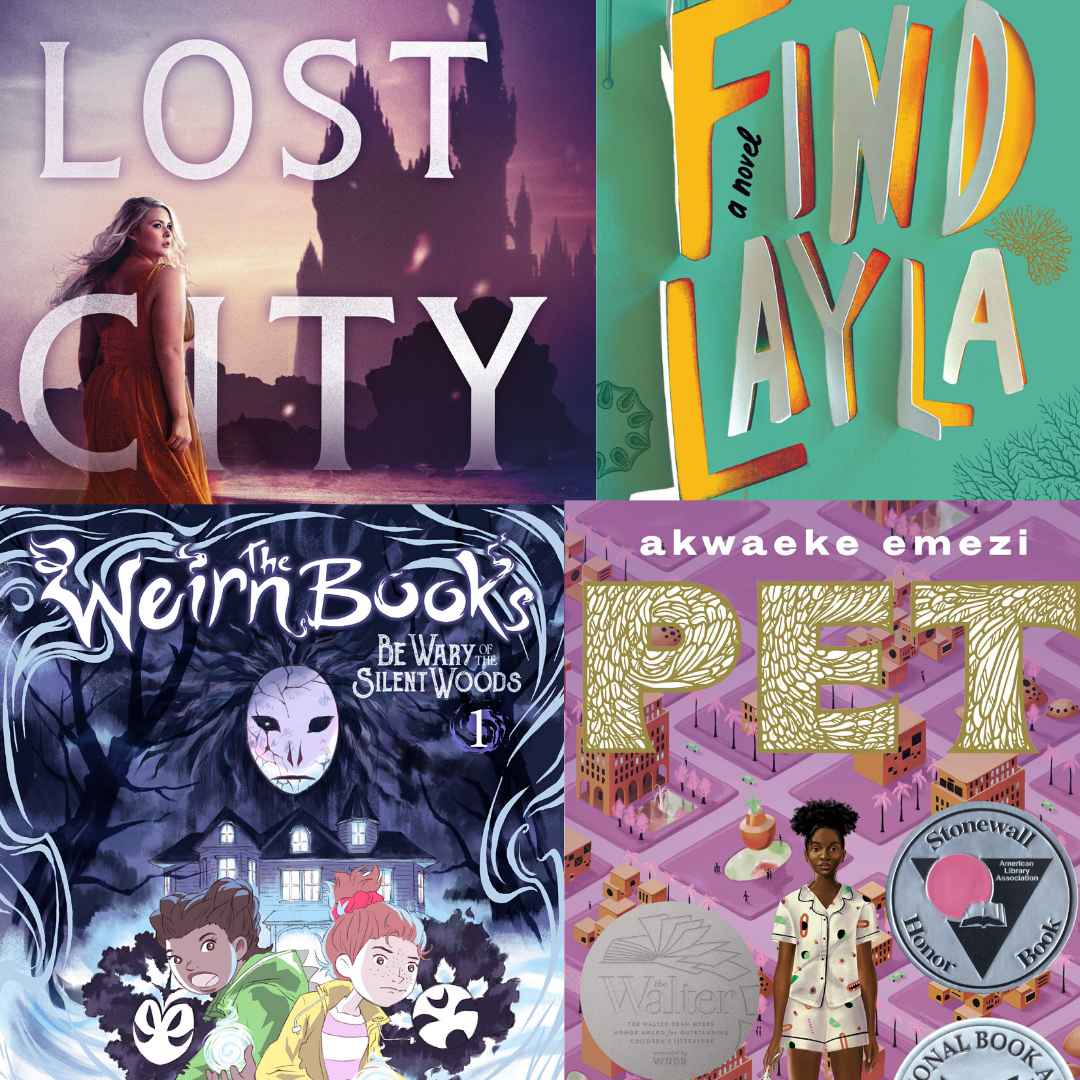What if Amy wasn’t Pretty: a tale of censorship
As a reader, I know that story has the power to change lives. From the moment I read It by Stephen King in the 6th grade, I knew that I wanted to be THAT type of friend. When I read To Kill a Mockingbird by Harper Lee I knew I wanted to be THAT type of a person. You can, in fact, read about a couple of my life changing experiences as a reader here and here.
As a librarian, as someone who cares about teens, who cares about the future of the world, I count on the fact that story has the power to change lives. I put books in the hands of teens every day and hope that they will have their Pandemonium or Ask the Passengers moment.
ADVERTISEMENT
ADVERTISEMENT
As a girl, I understand that story has the power to help us understand who we are, how we think, and how we can be so much more than the world sometimes seems destined to let us be. I imagine that is also the case for boys, but have less personal insight into it. But that is why there is such tremendous value in authors like Judy Blume and Sarah Dessen and Sara Zarr and yes, in the book Pretty Amy by Lisa Burstein.
You see for me, the heart of Pretty Amy is the story that most girls have within them: we are struggling to be at peace in our own skin, we are struggling to find a group of people that we can be It level friends with. We want to find a way to hold our head up high and feel pretty – not on the outside pretty, but inside valuable to the world no matter what pretty. And this is the heart that beats in the core of Pretty Amy.
However, before Amy can get to the climb towards self acceptance, she must – like so many of us must – realizes that she needs to take that journey of self discovery. In Pretty Amy, that moment comes when she is arrested on prom night for drug possession (marijuana) and intent to sell. Yesterday, author Lisa Burstein tweeted that a magazine had decided not to publish a review of her book Pretty Amy because it had teens using drugs in it.
Let’s take a side step for a moment, shall we? You may have heard that there is a mega hot selling book out right now called 50 Shades of Grey. I have not read this book, but it is my understanding that many people consider it to be a model of unhealthy relationships. There are articles about this book on every major news outlet and you can see commercials for it on TV. You can not escape the phenom that is 50 Shades. So, while we are busy being told time and time again that these types of relationships – and trust me, 50 Shades is not the only example out there, I have even discussed before my concerns about the way unhealthy relationships are portrayed in teen fiction and, in this case, adult fiction (trust me, teens are reading it too) – are okay, we are going to sweep Pretty Amy under the rug because a teen does drugs. Please note: drug use is in no way glorified or condoned in this book, in fact, it is the impetus for Amy’s journey to a healthy sense of self which means she must move away from these activities. What’s the take away teen readers get here? Reading about unhealthy romantic relationships good and titillating, reading about non glorified drug use is bad. Let’s unpack that a little further shall we: it is your role to subjugate yourself in unhealthy ways to a man to find fulfillment as a woman, but we can’t let you read about a teenage girl smoking pot, being punished for it and finding ACTUAL healthy self-fulfillment.
ADVERTISEMENT
ADVERTISEMENT
So while Bella must surrender her soul and become a member of the immortal undead to find her true love and we accept that, we can’t let teens grapple with a very real life scenario and come to a sense of understanding that some of the choices that we make are unhealthy and unwise but we can fix them. They don’t have to define us as we can move forward and make different choices. Please note Bella can never make a different choice – she has surrendered her soul – but Amy most definitely can.
That is part of the value of realistic fiction. It allows us as readers to step into someone else’s shoes, to live another person’s life, and learn from it. We may learn compassion for others. We may learn to make different choices. We may learn to act, think or feel differently – but we learn. The question we must ask ourselves is this: how do we want our teens to learn? Do we want them to learn in the safety of their rooms in the pages of a book? Or do we want to shelter them to such an extreme that they don’t understand the dangers of the world they live in and are forced to learn in very real ways? I personally vote safety of a book, but that’s just crazy talk.
I have known teens and have watched them disintegrate before my eyes because they have fallen into the rabbit hole of drugs. It is such a horrible sight to witness, drugs are a powerful force. Abuse, drugs, crime – literature, the power of story, can help teen readers figure out how to live in the world without making very painful and sometimes irreversible mistakes. If we want our teens to be critical thinkers who can make good decisions for self and future, then we must be willing to let them enter into the pages of a book and examine the story critically.
Amy becomes pretty, pretty on the inside pretty, because she learns to love herself. Her story can teach teen girls everywhere to do the same. I wish that we would understand that our teens are on those crucial steps toward adulthood and we need to allow them to make safe steps on that journey by allowing them the opportunity to think and feel and interact with the real world. And let’s not forget, some of our teens are already living those lives that we are trying to protect other teens from, we devalue them and their story when we censor their truth. Just because you want to pretend something isn’t there doesn’t really make it go away. I think the question we have to ask ourselves is how to we learn about the lives of our teens, give them voice, and have meaningful conversations with teens and each other about the lives of teens. And the answer is found in the pages of books like Pretty Amy.
Read my previous thoughts on censorship:
A Banned Books Week Primer
Banned Books Week: Teen fiction is . . .
Here is my review of Pretty Amy by Lisa Burstein
And read more about the power of YA literature by clicking on the Why YA? link
Filed under: Censorship, Lisa Burstein, Pretty Amy
About Karen Jensen, MLS
Karen Jensen has been a Teen Services Librarian for almost 30 years. She created TLT in 2011 and is the co-editor of The Whole Library Handbook: Teen Services with Heather Booth (ALA Editions, 2014).
ADVERTISEMENT
ADVERTISEMENT
SLJ Blog Network
One Star Review, Guess Who? (#202)
This Q&A is Going Exactly As Planned: A Talk with Tao Nyeu About Her Latest Book
More Geronimo Stilton Graphic Novels Coming from Papercutz | News
Parsing Religion in Public Schools
ADVERTISEMENT











HEAR, HEAR! I completely agree – do we know which magazine refused to print it?
Kearsten
Wow, I am so sorry to hear that. I think Pretty Amy did a fantastic job of showing the real-life consequences of getting arrested for possession, of going along with your friends' bad idea, etc. And it does those things in an engaging way so that kids might actually listen.
My review of Pretty Amy
My lips are sealed on that one. They were completely professional and entitled to their opinion. I just don't agree with it 😉
“The question we must ask ourselves is this: how do we want our teens to learn? Do we want them to learn in the safety of their rooms in the pages of a book? Or do we want to shelter them to such an extreme that they don't understand the dangers of the world they live in and are forced to learn in very real ways?”
Yes yes yes. There's so much value to learning about tough situations through books as opposed to encountering them in real life. And for teens who have already encountered these tough situations in real life, these books are even more valuable as they let teens know they're not alone. Life is always complicated, and YA fiction needs to reflect that.
This is interesting only to the extent that we know what magazine, or, at the very least, what type of magazine pulled the review. Was it a mainstream magazine that ya librarians use for collection development? If so, that's terrible (and quite surprising–given the books that are regularly reviewed in magazines like that). Is it a small, magazine with little influence–sad, but not that significant. A conservative magazine? No surprise.
I can't say the name of the magazine, because I just don't think that's right, but I can say that it was a mainstream, national teen magazine. Not with a conservative agenda.
I completely agree. Thank you for your comment.
Thanks for sharing, as I have not heard of this book or the refusal by the magazine to post the review. I will now have to read it, natch. I wanted to let you know that I posted your blog on Pretty Amy on my Facebook.
Thank you for sharing this information, as I had not heard of this book for the pulling of the review. I will now have to read it. I wanted to let you know I posted your blog about Pretty Amy on my Facebook page.
I hope you enjoy it. And thanks for sharing this post, it is greatly appreciated.
Thank you, I totally agree with you. 🙂
The author has only gone on the record to state that it was a national teen magazine but she has chosen not to disclose the name of said magazine because, I get the impression based on her tweets, they handled themselves professionally and they are obviously well within their rights. As a librarian and even a moderately conservative Christian myself, I cringe to see elements of a story taken out of context. We can only really evaluate a work as a whole. If we looked at just pieces, then we would be throwing out our Bibles for the intense violence and yes, sex. I personally feel that throwing out Pretty Amy because there is some drug use is to fail to look at the piece as a whole and evaluate the drug use in context. Part of what we need to embrace as a society is the ability to think critically and these reactionary tendencies set up as a society that fails to learn how to do that and we all suffer.
Wow, like I said on Twitter, where are peoples heads at? I can sort of take a guess at which magazine this was, but I'd like to point out that A LOT of mainstream national teen magazines feature real life stories from teens who have went through similar experiences as the book's character Amy. So I almost feel like this book would actually really fit with what a lot of the content in teen magazines!!
It also just blows my mind that the books that often get a lot of hype – such as 50 Shades of Grey and Twilight, like you said, are the ones where the main character often experience fulfillment by serving someone else (usually a man). It makes me sad, but also angry 🙁
Thanks for bringing this issue to my attention, and I loved reading your perspective on it!
You all may be interested in knowing that the Lancaster Public Library, in Lancaster, PA, the state of Sandusky and Paterno, has refused to shelve a book on children identifying and reporting sexual predators–for the stated reason that is has Christian content.
http://safelibraries.blogspot.com/2012/07/library-guilty-of-religious.html
I'll make a double dog bet that the annual list of supposedly censored books will not include the Yell & Tell series.
http://www.yellandtellbooks.com/
While I'm writing here, as to Fifty Shades of Grey, you all know the National Coalition Against Censorship, the American Library Association, and other “free speech” groups have come out four square and openly in favor of porn in public libraries, right?
http://safelibraries.blogspot.com/2012/06/ncac-pushes-porn-on-libraries-fifty.html
That said, Pretty Amy sounds like it received unfair treatment.
Having worked in libraries for almost 19 years now, it seems highly unlikely to me that a book would be deemed inappropriate for a collection simply based upon the fact that it had a Christian point of view. In fact, most public libraries are in fact biased in their 200s towards the Christian point of view and many include separate inspirational (Christian) fiction collections. When libraries look at adding materials to their collections they look at their local collection development policy, reviews, and in the case of nonfiction, the accuracy of the information. I am not familiar in any way with this book so I can't speak about it, but it is possible that it has some incorrect information, is poorly formatted, etc. Again, I have no idea so I can not in any way speak on the matter.
As for 50 Shades being in public libraries, most library policies have a “patron demand” clause in their collection development policies and as I get asked for this book almost daily, it would certainly fall within the realm of that clause. In a previous library system that I worked at, we purchased titles that we received more than 3 requests for.
Free Speech is an inherently important democratic principle that we must maintain. Remember, the ancient church controlled the people and the political climate by keeping the Bible in a language they could not read and telling them what they thought it said and threatening excommunication to those who did not follow their teachings. It is only with the translation of the Bible in the vernacular that the people were able to take greater control of their personal faith and were free to develop personal, intimate relationships with their God. That is the inherent danger of controlling access to information – he (the government, group, individual, party, etc.) who control the access gets the upper hand. There is no personal freedom with access to a wide variety of information and the ability to decide for oneself how to think, feel, be and live their life.
As a Christian I sit every Sunday in my church and know that I hold beliefs different from some of the very members of my congregation. I would not want them imposing their views on me anymore than I want to impose my views on them. Even the notion of “what does it mean to be Christian” is a complex notion as witnessed by the various denominations that flood the landscape of our country. That is why I speak not of “free speech” like it is some questionable agenda, but I speak of FREE SPEECH as if it is an important constitutional right that allows all citizens access to a wide variety of information so that they can determine for themselves what it means to have Life, Liberty and the Pursuit of Happiness.
I personally have strong issues with many of the items in my library's collection, and I always will. But it is not my place to determine for you or any other citizen what they can or can not have access to. For when we limit access, we take control.
Hey Dan! I'm really surprised you still try to pull this crap with librarians. Stick to the little local news stories.
I do think part of the problem is with the marketing of PRETTY AMY. If you look at the cover the tagline is “Sometimes date is a four-letter word.” All the advertising I've seen for PRETTY AMY made me think it was a laugh, cry, call-your-best-friend fun story about a hilarious prom misadventure. In that type of novel drug use is questionable. Instead PRETTY AMY is a John Greenesque emotional journey of a teen who made bad choices and has to rediscover who she is. The catalyst for this journey is the drug use and subsequent arrest. It is not lighthearted and fun but it is powerful and can be life-changing. I don't think people who haven't actually read the book understand this and that is what made them quick to disregard it.
Thanks, Karen. You make a lot of sense. Should you ever wish to write on any library-related topic as a guest post on my SafeLibraries blog, I would welcome that.